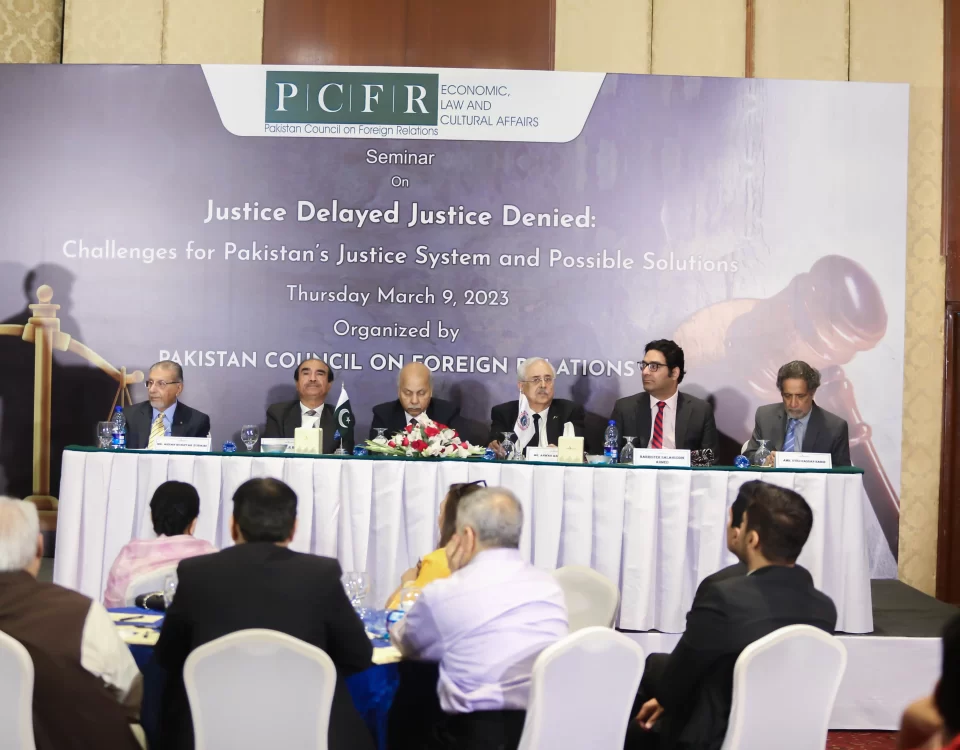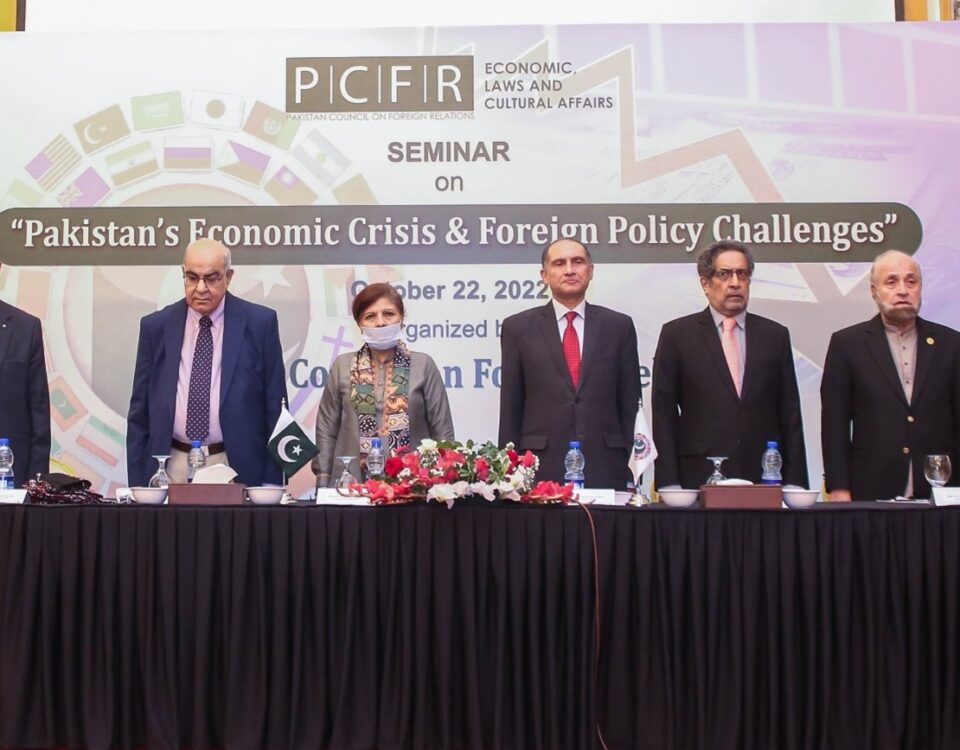
Dinner in Honor of H.E. Dr. Brahim Romani
December 14, 2022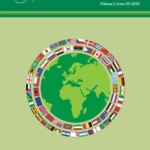
The New Vision – Issue III
April 1, 2023
Dinner in Honor of H.E. Dr. Brahim Romani
December 14, 2022
The New Vision – Issue III
April 1, 2023Justice Delayed Justice Denied
Challenges for Pakistan’s Justice System and Possible Solutions
On March 9, 2023 Pakistan Council on Foreign Relations (PCFR), hosted a Seminar on “Justice Delayed Justice Denied: Challenges for Pakistan’s Justice System and Possible Solutions” at Avari Towers Karachi. Mr. Justice Gulzar Ahmed former Chief Justice of Pakistan grace the event as the Chief Guest while Mr. Anwar Mansoor Khan former Attorney General of Pakistan and Barrister Salahuddin Ahmed former President Sindh High Courts Bar Association addressed the seminar.

Mr. Ahsan Mukhtar Zubairi Secretary General of PCFR presented the welcome address and briefed the audience on the journey of PCFR since its formation. Mr Zubairi said the justice system is crucial for upholding order in the society and judiciary plays vital role in addressing the disputes and ensuring fundamental rights of citizens. He further said that complexities of legal instruments and lack of resources have resulted in the delay in delivery of justice in Pakistan.
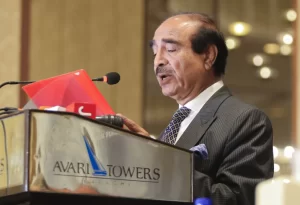 Ambassador G R Baluch presented the opening remarks on the subject of seminar and said that phrase of Justcie Delayed is Justice Denied is as relevant as it was more than two centuries back when it was first coined in nineteenth century. Ambassador Baluch further said that access to justice is a fundamntal human right and a critical component of good governance as it ensures that every individual has the ability to seek legal record and grievances addressed in impartial way. He raised question that if we can use technology including artificial intellegence for case management, scrutiny of evidence, and application of basic laws for enhancing the efficiency and accruracy in our judicial system.
Ambassador G R Baluch presented the opening remarks on the subject of seminar and said that phrase of Justcie Delayed is Justice Denied is as relevant as it was more than two centuries back when it was first coined in nineteenth century. Ambassador Baluch further said that access to justice is a fundamntal human right and a critical component of good governance as it ensures that every individual has the ability to seek legal record and grievances addressed in impartial way. He raised question that if we can use technology including artificial intellegence for case management, scrutiny of evidence, and application of basic laws for enhancing the efficiency and accruracy in our judicial system.
Barrister Salahuddin Ahmed addressed the seminar as the first speaker. He highlighting that the problem with justice is link with only complains from all the stakeholders of the system rather than rectifying the issues with concrete steps. Barrister Ahmed maintained that there is systematic problem in our justice system which needs to be tackled systemically if we want to improve the system. He further said that systemic solution demands empirical research, collection of quantitative data, and data analysis which can lead to the hypothetical solutions that can be tested into different court systems and monitor results accordingly.
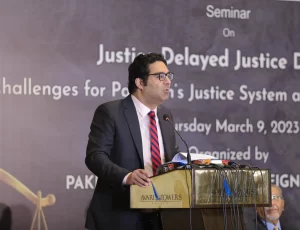
Barrister Ahmed proposed that there is need of a dedicated task force with authority of collecting data on filing of cases, how it is processed through the court system, and then how it is disposed of. He further said that the task force needs to suggest new solutions of case management and get them implemented through all the stakeholders (i.e. judges, lawyers, government, and other stakeholders) and then monitor for a qualitative improvement. Barrister Ahmed also emphasized upon the inclusion of modern technology for filing and management of cases to avoid the delays on process. He further said that all the reforms need to be undertaken with institutional investment to have concerted effort to affecting the change.
Mr Anwar Mansoor Khan while addressing the session highlighted that delay in deciding the cases has become a serious issue of our justice system. He further highlighted that we lacked behind in laws such as the issue of with laws such as civil procedure code, the criminal procedure code, the Pakistan penal code, and similar codes which are crucial in conducting and deciding the cases. Talking about the capacity of courts he specifically mentioned that high courts are overloaded with number cases which are files genuinely or otherwise. Mr Khan said that the case management is very crucial aspect of our justice system but in our courts working it lacked effective case management system.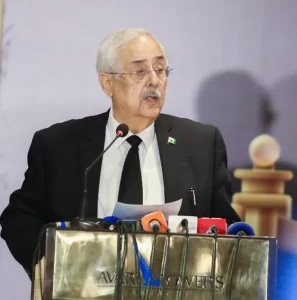
Mr Anwar Mansoor recommended that legislature has to modify the chief court rules, civil court rules, and civil procedure codes substantially as these laws are outdated which are causing complexities in deciding the cases. He further stressed upon the change in methodologies being used in proceeding with cases in our courts such as digitization of process of filing cases so that it is properly archived and is accessible to concerned authorities. He further said that there has to be amendment in the civil procedure code in relation to the alternate dispute resolution specially through mediation that would reduce the number of cases filed in courts. He also pointed out we may be much bothered about the delays but it has direct impact on decreasing or boosting the confidence of foreign investors therefore we need to make necessary amendments to relevant laws to cater for those investors.
Mr. Justice Gulzar Ahmed, former Chief Justice of Pakistan began with contrasting the relevance of two famous phrases “Justice Delayed Justice Denied” and "Justice Hurried is Justice Buried" which are equally famous in the judicial sphere. Justice Ahmed maintained that the literal meaning of both phrases would be simple that Justice has to be done and seen to be done without inexplicable delay. He highlighted the importance of Justice delivery which plays a vital role in the socio- economic development of the country and bring harmony in the society by eliminating uncertainties.
Justice Ahmed highlighted that the Judiciary in Pakistan is under severe stress owing to ever mou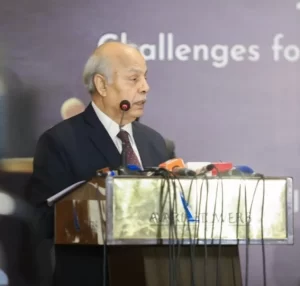 nting pendency of cases which causes delay in decision of cases and this phenomenon is as old as the country itself. He further said that the courts on the basis of available resources are constantly addressing this chronic issue but the backlog is still there which causes stagnation of the society.
nting pendency of cases which causes delay in decision of cases and this phenomenon is as old as the country itself. He further said that the courts on the basis of available resources are constantly addressing this chronic issue but the backlog is still there which causes stagnation of the society.
While referring to the constitutional trichotomy of power, Justice Ahmed said that there is no other power center except Parliament, Executive and Judiciary. Justice Ahmed mentioned that parliament and the executive were facing a tough time and there were challenges for their ‘survival’, but they must spend more time to amend outdated laws for quick dispensation of justice. Although, it is a tall task, but a real government with popular vote to deliver to the people, should take up all these issues,” Justice Gulzar added.
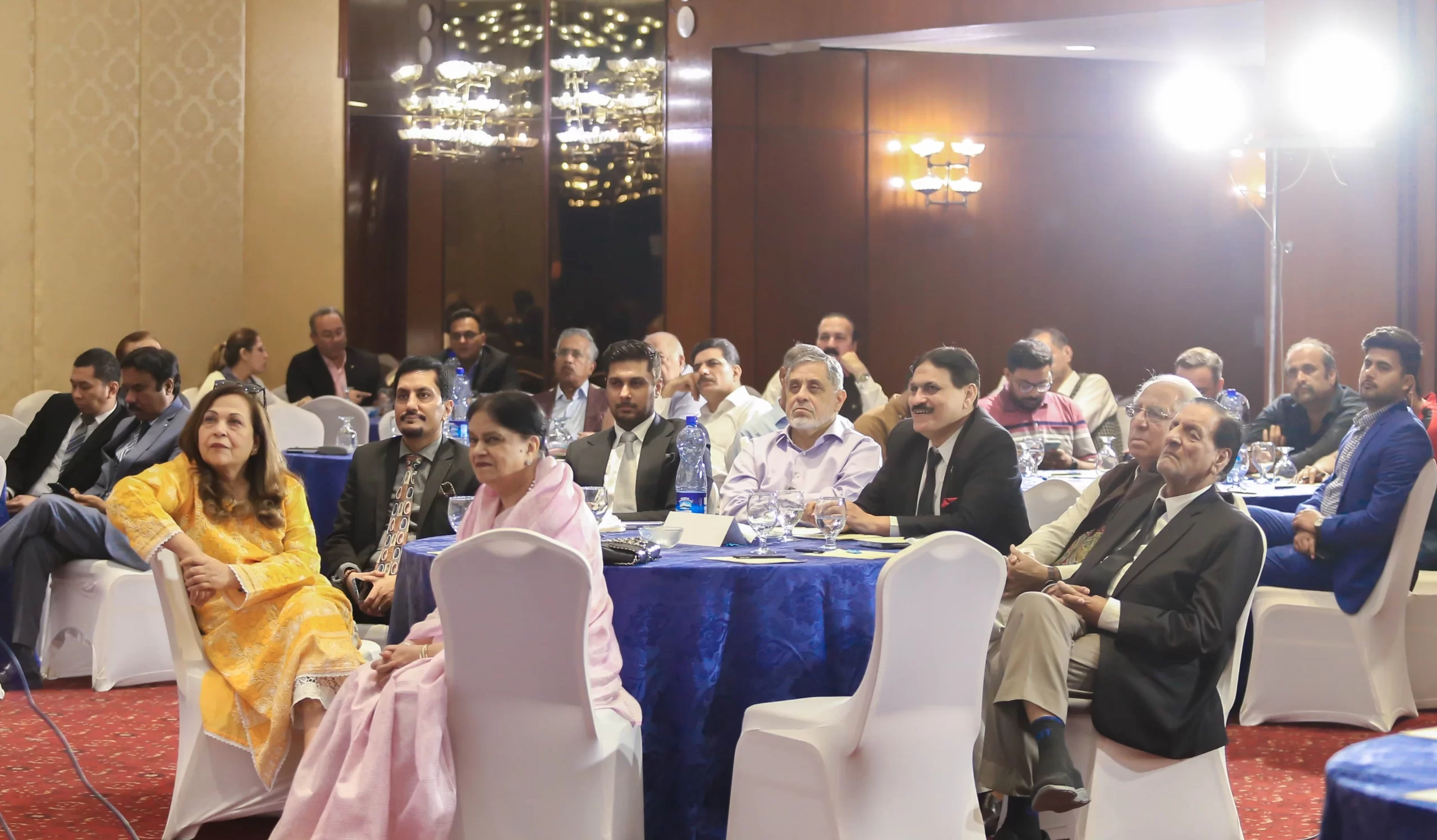
Justice Gulzar Ahmed concluding his talk with several suggestions, including increasing the strength of judges, filling vacant posts of judges, penalizing frivolous litigants, discouraging unjustified adjournments and time frame for hearing of a case in order to improve judicial system and timely disposal of cases. Justice Gulzar further said that the government should constitute commissions and committees and involve lawyers and civil society to come up with suggestions for disposal of cases as early as possible. Ambassador Syed Hasan Habib presented the vote of thanks and acknowledged the presence of worth speakers and guests from the diplomatic corps, legal fraternity, business community, and academia.




